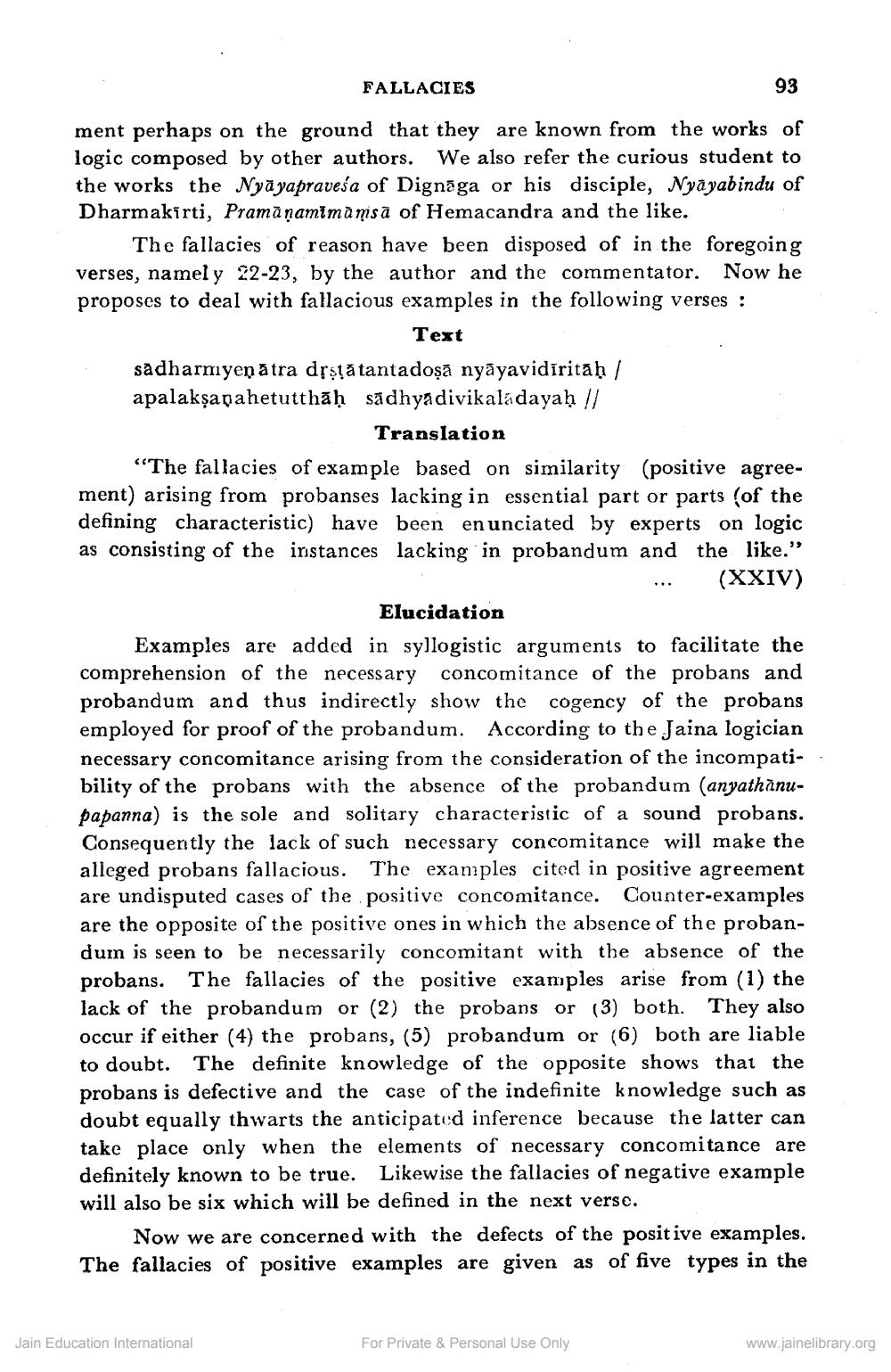________________
FALLACIES
93
ment perhaps on the ground that they are known from the works of logic composed by other authors. We also refer the curious student to the works the Nyāyapraveśa of Dignāga or his disciple, Nyayabindu of Dharmakirti, Pramā ņamimamsā of Hemacandra and the like.
The fallacies of reason have been disposed of in the foregoing verses, namely 22-23, by the author and the commentator. Now he proposes to deal with fallacious examples in the following verses :
Text sadharmiyen ātra dsstātantadoşă nyāyavidiritāḥ/ apalakṣapahetutthāḥ sādhya divikaladayaḥ ||
Translation “The fallacies of example based on similarity (positive agreement) arising from probanses lacking in essential part or parts (of the defining characteristic) have been enunciated by experts on logic as consisting of the instances lacking in probandum and the like."
... (XXIV) Elucidation Examples are added in syllogistic arguments to facilitate the comprehension of the necessary concomitance of the probans and probandum and thus indirectly show the cogency of the probans employed for proof of the probandum. According to the Jaina logician necessary concomitance arising from the consideration of the incompati- . bility of the probans with the absence of the probandum (anyathănupapanna) is the sole and solitary characteristic of a sound probans. Consequently the lack of such necessary concomitance will make the alleged probans fallacious. The examples cited in positive agreement are undisputed cases of the positive concomitance. Counter-examples are the opposite of the positive ones in which the absence of the probandum is seen to be necessarily concomitant with the absence of the probans. The fallacies of the positive examples arise from (1) the lack of the probandum or (2) the probans or (3) both. They also occur if either (4) the probans, (5) probandum or (6) both are liable to doubt. The definite knowledge of the opposite shows that the probans is defective and the case of the indefinite knowledge such as doubt equally thwarts the anticipated inference because the latter can take place only when the elements of necessary concomitance are definitely known to be true. Likewise the fallacies of negative example will also be six which will be defined in the next verse.
Now we are concerned with the defects of the positive examples. The fallacies of positive examples are given as of five types in the
Jain Education International
For Private & Personal Use Only
www.jainelibrary.org




